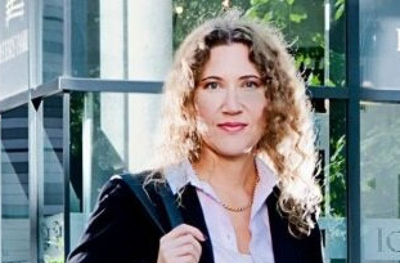Australia/Israel Review
The Last Word: The Darville in the Detail
Sep 24, 2014 | Jeremy Jones

Jeremy Jones
Twenty years ago, this writer, academics, media personalities and political and ethnic community leaders were, to use the language of the time, “debating Demidenko” – after the respected Miles Franklin Prize was awarded to a book, purportedly written by an Australian of Ukrainian heritage, which sympathetically portrayed Nazi murderers and their supporters.
Based on interviews given by the author and the text of the novel, there were concerns that the prize had been awarded, in part, because judges saw the antisemitism in the book as an “authentic”, and even justifiable, part of Ukrainian culture.
In an address at the Sydney Institute, Janice Kulyk Keefer, the internationally respected Canadian writer, publicly dissected the historical, cultural and logical fallacies “Demidenko” and her supporters were promoting as authentic. Ukrainian community leaders expressed horror at the anti-Jewish statements and depictions of Ukrainian life they argued were ludicrous.
Basic research revealed that Helen Demidenko was not “Demidenko”, that parts of the book had been lifted from other writing, and that the writer had not visited Ukraine in the 1980s and seen Jews ruining the lives of the people, as she had claimed on radio. Instead, she had pulled the wool over the eyes of a segment of Australian intelligentsia who simply wanted her to be telling an untold truth.
Discussion on her co-option of a cultural identity for apparently cynical purposes and her “borrowing” of text for her book and later problems with alleged plagiarism in her newspaper column and elsewhere, as well as a variety of controversial public interventions, kept her in the Australian consciousness for some time.
No longer known as Helen Darville, or by her authorial pseudonym, she is now known as Helen Dale, staff member for Liberal Democrat Senator David Leyonhjelm.
She is far from unintelligent, not an unskilled wordsmith and, unless she behaves to the contrary, there is no reason not to accept her public assertions that she has changed her views on a number of matters which caused past concern.
But it is important that she owns her past as it was, not as she would like it to be.
It is worth returning to one aspect of the subject matter of the novel which brought her into the public spotlight – the way different community figures responded to accusations that Nazi war criminals were living in Australia.
Some proclaimed the alleged Nazis were nothing other than patriotic citizens who had wanted to save their people from (Jewish or otherwise) Bolsheviks.
Others claimed the so-called Nazis were anti-communists victimised by a Soviet-Jewish-ALP-Liberal/National Party-ABC-Fairfax and Murdoch conspiracy.
Real leaders promptly and unambiguously said that individuals who had participated in the Nazis’ genocide were criminals who should be punished. They stressed, reasonably, that it was the individuals, not communities, who should face consequences for their actions, and that all decent people found Nazism repugnant.
This is of relevance not simply because the German Government is still today laying new charges against alleged Nazi war criminals.
It is also timely as a template against which to assess responses to publicity over Muslim individuals and networks in this country allegedly found to be promoting or planning terrorism.
Some go very close to justifying, in the way they rationalise, the actions of those who align with terrorist ideologies and movements – implying that it is morally admirable to fight Jews, Sunnis, Shi’ites, Christians, Americans, Israelis or whomever.
Others say that there isn’t a real terror problem, just a confection by the Government (supported by the Opposition) to distract the public from other issues, to justify “big brother” controls or to serve the Jews/Americans/Israelis/Shi’ites/Sunnis or whomever.
The third group, including virtually all Muslim leaders with meaningful constituencies and ongoing engagement with the broader Australian population, recognise terrorists as a problem for them at least as much as for everyone else.
Due to the credibility they establish, they can make effective representations, where needed, to government. In twenty years time, they will be remembered as the people who served the interests not just of Australia but of those communities they speak for.
Tags: Australasia






